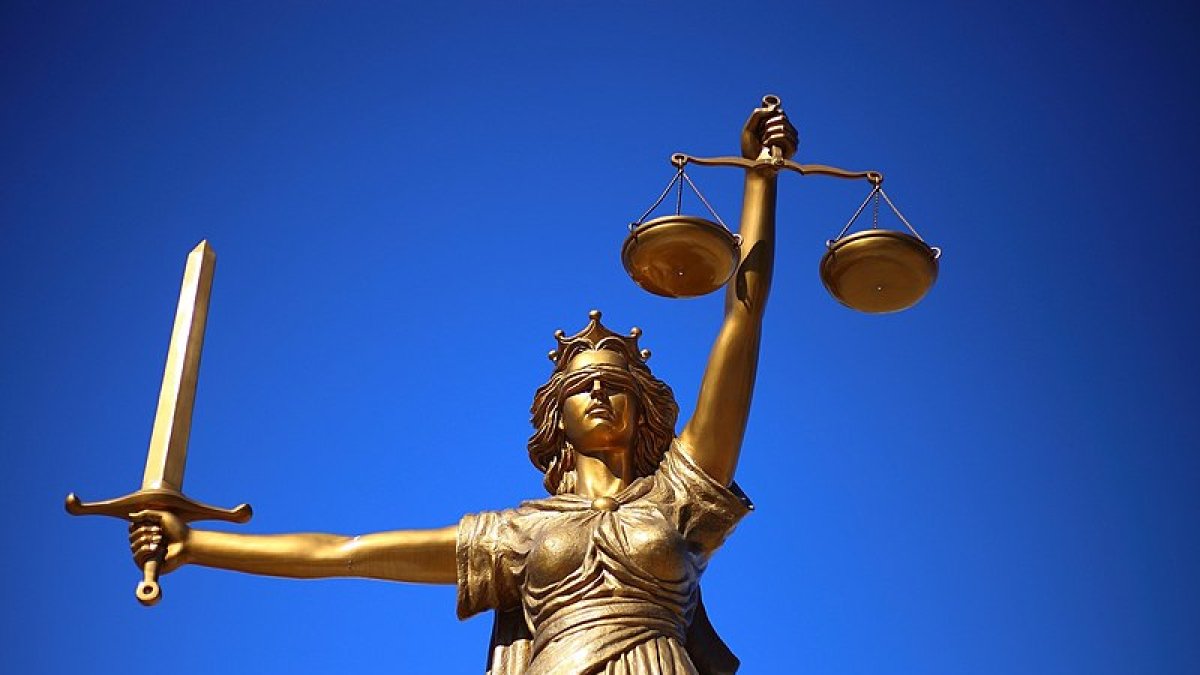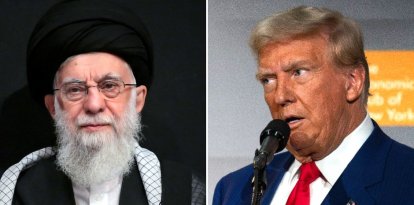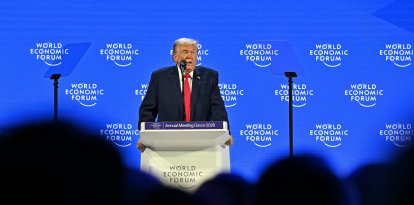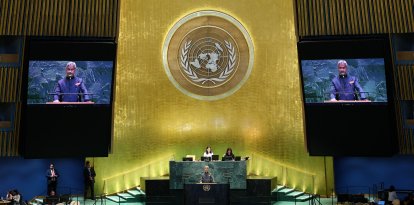Lawfare, the self-fulfilling prophecy that threatens democracy
Lawfare is the self-fulfilling prophecy that comes from the distrust in our system and, consequently, in the structures that make despotism impossible.

Representative image
The popularity attained by the term lawfare is one of the clearest indicators that there is a serious problem with our democratic order. Generalized a few years ago, its meaning alludes to the judicialization of politics and the consequent expansion of the Judiciary into issues that were formerly only dealt with in the framework of political affairs and resolved through voting. It is a global tool of polarization, which means that, in today's political discussion, it is sadly accepted that the judicial system of a country has a certain political or ideological preference and acts according to that priority. The paradigm shift that this idea represents is brutal, given that it constitutes a threat, to that same democracy, that citizens no longer believe in the impartiality of judges.
The expression is a neologism that arises from the grammatical contraction of law (law) and warfare (war), and denounces the Judiciary that is used as an actor of the judiciary. Judicial Power that is used as a partisan actor dedicated to discredit the political career of an opponent, inventing or ignoring, slowing down or speeding up judicial cases to the liking of the political client of the day. The neologism first appeared in an article published by John Carlson and Neville Thomas Yeomans in 1975 entitled Whither Goeth the Law: Humanity or Barbarity, where the authors explained that the search for what is just had been replaced by a battle whose chessboard was the courts. It was subsequently popularized by Charles J. Dunlap Jr, in a 2001 essay for Harvard's Carr Center called Law and Military Interventions: Preserving Humanitarian Values in 21st Conflicts, where lawfare was defined as "the use of law as a weapon of war.”
According to this theory, the instrument of lawfare is used by the powers-that-be and their minions to destroy political alternatives by persecuting and imprisoning their representatives. But lawfare has also been accused of judicial actions that impute those in power, in which case the defendants allege conspiracies carried out by subterfuge powers more powerful than the institutional power itself. By the way, politicians, former or current national and international leaders, artists, influencers, journalists and opinologists of all types are horrified by the court cases that have been brought against them.are horrified by the judicial causes accumulated by politicians with whom they have ideological closeness, but see the strictest independence for the causes of their opponents; even when the evidence of lack of judicial independence is flagrant.
As it is, in France, after winning the most votes, President Macron had to make an agreement with the antisemite Melenchon to run her from the podium. Marine Le Pen has been accused by the French Criminal Prosecutor's Office which has opened a investigation for "illegal financing" related to her 2022 presidential campaign. She is accused of using European Parliament funds, mainly from the salaries of parliamentary assistants and even her bodyguard, on political campaigns. Le Pen faces up to 10 years in prison. She could even be banned from running for elective office if convicted after the embezzlement trial to begin in Paris in September. This would put her out of the 2027 presidential race. Upon learning of the trial, Le Pen accused the judiciary of acting in a "mostly political" manner.
Recently, Donald Trump was convicted for the hush money payment he made, during the 2016 presidential campaign, to porn star Stormy Daniels to ensure that she did not publish intimate information about the two of them. Trump's response to the trial and subsequent conviction was that it was a dirty tactic used to hinder his presidential campaign. The same has been said about the judicial process that resulted in Jair Bolsonaro being disqualified from running for new candidacies. The same argument was used to denounce the judicial persecution of his archenemy Lula Da Silva when he was imprisoned for corruption. And the same has been said about opposition leader María Corina Machado’s disqualification applied by the Maduro regime.
One of the most influential political leaders of Latin American socialism, Cristina Fernández de Kirchner, used the idea of lawfare to refer to her multiple judicial cases, and to the cases of her national and international fellow travelers. Mrs. Kirchner used as examples of her victimizing narrative against the "hidden powers of neoliberalism" not only her judicial cases but also the cases of former President Rafael Correa and former President Evo Morales when both fled from the court system in their country. But when Evo Morales was able to return to Bolivia (and put in power a puppet as Cristina Kirchner did in Argentina) he charged and tried the opposition leader and former president Jeanine Añez as well as the also opposition governor Luis Fernando Camacho. The opposition claimed that justice was at the service of Evo. All politicians and their supporters see, in the charges and investigations against them, a political persecution or lawfare. It is a narrative shared by Trump and CFK, Bolsonaro and Lula, Machado and Añez, and now Le Pen.
In today’s liberal democracy, the independence and separation of powers of the state were a guarantee against abuses or injustices by the rulers. The judiciary, by imposing the equality of all citizens before the law, was erected as that space of neutrality in which we all had to respond in the same way beyond our economic, social, and even ideological positions. This principle was enshrined in our Constitutions and governs the lives of citizens. Or so we thought. But the stubborn degradation of our institutions has also affected the justice system and, throughout the West, confidence in judges and their actions is at rock bottom;
While it is true that there have always been corrupt judges, privileged sectors and rigged processes, the truth is that Justice as a neutral space was an aspirational solid, containment dike of totalitarianism. But political polarization corrodes absolutely everything, to the point of making us wish that those who do not share our political stance are arrested by any means, including unfair trials or legal cases that 20 years ago would not have taken place. Currently, the left and the right are denying the theory of socialism from the XXI Century, according to which lawfare was only applied against leftist leaders, to remove them from the electoral races.
The truth is that, in the face of distrust in the judicial institution, politicians, judges, prosecutors, corporate elites and members of what we call the establishment are using the legal process to attack each other and prevent electoral competition. We all feel that it is unfair to accuse our own and we all feel that the power is on the other’s side. And possibly there are just and unjust cases, repugnant cases that are political acts that once would not have reached Justice and aberrant cases Justice would have once condemned and today remain unpunished.
The 21st century’s socialism has been, among other things, a successful propagator of narratives and was the one that popularized the concept of lawfare. It twisted and distorted it, converting the judicial institution into an enemy when it could not co-opt it. But little has been done by the rest of the political arc, everything to the right of the left, to defend the institution and its neutrality, and little has been done by the institution itself to regain its sacred role within democracy. When a society is in decadence, it is not a little bit in decadence, nor does it decay in fragments. Justice cannot escape the decline and, unfortunately, society perceives one of the powers of the State as one more political instrument to destroy the adversary when voting is not enough.
The lawfare narrative has robbed honest judges of their status as guarantors of justice and has turned militant judges into part of an autocratic caste opposed to the popular will. And no one distinguishes who is who anymore. Today the supreme court justices are famous and their rulings are seen not as part of a wise decision but as a death rattle of their ideological affiliation. It makes sense that, from there on down, no one believes in the judiciary. Political polarization has delegitimized the Judiciary, transforming it into a reactionary power that seeks to tip the electoral balance by extending its scope of action beyond what is desirable. And a large part of that responsibility lies with the legislative powers, regulating every inch of life, allowing the power to intervene in formerly non-judiciable spaces.
The lawfare is the self-fulfilling prophecy that comes from distrust in our legal system and, consequently, in the structures that make despotism impossible. The separation of powers as a way of limiting the concentration and abuse of power has been for centuries the obsession of anyone who thought of politics as the best form of social coexistence. Contemporary democratic constitutionalism is based on this separation, and today it is immuno-depressed and in mortal danger. This is where the lawfare virus comes in. The lawfare theory will continue to be used and will grow in the coming years. With fair and unfair examples, it will continue to serve to argue that the Judiciary is just another electoral political instrument, and will end up being the tool to dismantle constitutions and their balances, leading liberal democracy down paths very different from those dreamed by those who wrote them in the hope of founding free and fair societies.

























